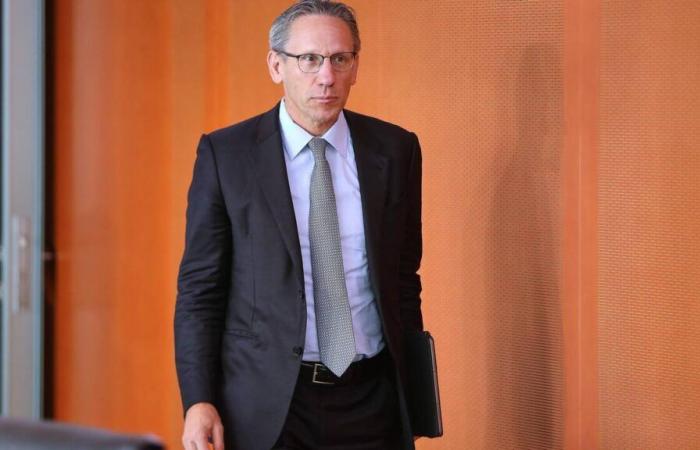The day after the dismissal of Christian Lindner, German Chancellor Olaf Scholz appointed his successor this Thursday, November 7. It is one of his close advisors, Jörg Kukies, in the post of Minister of Finance, AFP learned from a government source. Olaf Scholz had dismissed the holder of this portfolio, the liberal Christian Lindner, the day before.
Expert in economic issues, Jörg Kukies, 56, takes the reins of this key ministry in a government in crisis, which no longer has a majority in parliament and in which only the representatives of the Social Democratic Party and the Party of Greens.
Volker Wissing remains in government
In another announcement, one of the liberal government ministers, Volker Wissing, for his part indicated on Thursday that he remained in the team in power. The day before, the German liberal party FDP announced that all its ministers would leave the government, thus depriving the chancellor of a majority in the Chamber of Deputies.
Volker Wissing announced that he was leaving his party, disagreeing with the latter’s decision to break with Olaf Scholz.
“I want to remain true to myself,” he declared, to explain his decision to remain in post as Minister of Transport, while the three other ministers from the liberal FDP party (right), including Christian Lindner, have breaks up the coalition government.
Opposition presses chancellor on vote of confidence
Germany’s conservative opposition on Thursday urged Social Democratic Chancellor Olaf Scholz to submit to a vote of confidence in parliament “next week” at the latest, following the breakup of the ruling coalition.
The tripartite coalition between the Social Democrats, the Greens and the Liberals of the FDP “failed” and must draw the consequences without delay, declared the president of the Christian Democratic party CDU Friedrich Merz, after a meeting of his parliamentary group in Berlin.
He thus opposed the wishes of the chancellor, who preferred to wait until mid-January to submit his mandate to a vote by deputies and thus pave the way for the calling of early legislative elections towards the end of March.






